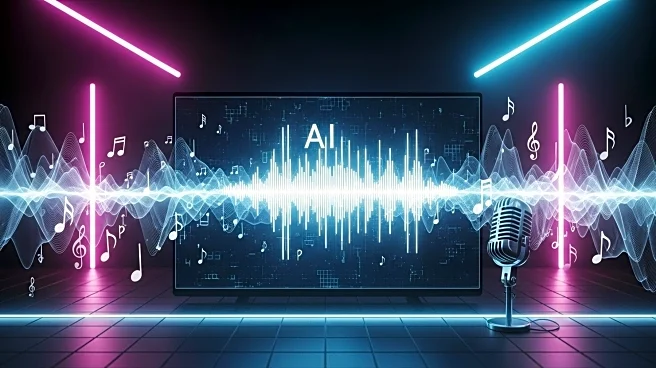What's Happening?
The rise of AI music creators, such as British artist Oliver McCann, is sparking debate about the future of the music industry. McCann, who lacks traditional musical skills, uses AI to generate music and has recently signed with a record label after achieving significant streaming success. This development highlights the growing influence of AI in music production, raising questions about the role of human creativity and the potential disruption of traditional music industry models.
Why It's Important?
The integration of AI in music creation could democratize the industry by allowing individuals without formal musical training to produce and distribute music. However, it also poses challenges, such as potential copyright issues and the devaluation of human artistry. Record labels and artists are grappling with the implications of AI-generated music, which could alter revenue streams and reshape the industry's landscape. The debate reflects broader concerns about AI's impact on creative fields and intellectual property rights.
Beyond the Headlines
The legal and ethical dimensions of AI in music are significant, as existing copyright laws may not adequately address the nuances of AI-generated content. This situation could lead to new legal frameworks and industry standards to protect artists' rights while embracing technological advancements. Additionally, the cultural impact of AI music, including its acceptance by audiences and its influence on music trends, will be crucial in determining its long-term viability and integration into mainstream music.











